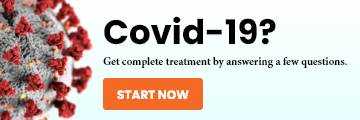In the six months since it was first reported to the World Health Organization (WHO) in China, COVID-19 has made over 10 million people sick and claimed more than half a million lives all over the world.
Read more: Six months on, WHO says the COVID-19 pandemic is not going to be over anytime soon
Dig a little deeper, though, and you'll find that about five and a half million patients have also recovered from this viral infection over the last six months.
Epidemiologists and medical researchers have been proposing theories on immunity to COVID-19: how it works, who is immune and for how long, what does it mean for our health in the long term, and its impact on public policy and health measures.
The latest among these theories is based on the findings of a research team from Sweden who think that the number of people immune to the disease may be higher than previously thought.
Their reasoning: you don't need to have antibodies in your system to prove that you had this coronavirus infection, and that you were successful in beating it.
In other words, it is possible that the T cells of the immune system (in some people) can conjure enough power to identify and fight SARS-CoV-2 (the coronavirus that causes COVID-19) and give future immunity against it too.
So far, a majority of the studies on matters related to immunity, recovery and treatment of COVID-19 patients have depended on antibody tests. Antibody tests are done to identify who among the people recovering from the disease have developed antibodies to fight the disease.
Read more: ELISA antibody test
Antibody testing has been critical in identifying not only patients who have recovered from the disease but also those who may have been asymptomatic and would not have found out they had the disease if they weren't tested.
By using this method, doctors and healthcare workers across the world have been able to identify who can donate blood plasma for COVID-19—plasma from recovered patients is rich in antibodies. The Indian Council of Medical Research is running a multi-centre trial to see if transfusing this blood plasma in moderately sick COVID-19 patients can help them recover. This is known as convalescent plasma therapy.
However, the new research from the scientists in Sweden shifts the focus from antibodies on to how T cells in the body fight off infections such as COVID-19—and how T cells could prove to be critical towards long-term immunity from the respiratory infection.
Read more: Monoclonal antibodies and their importance in fighting COVID-19
























